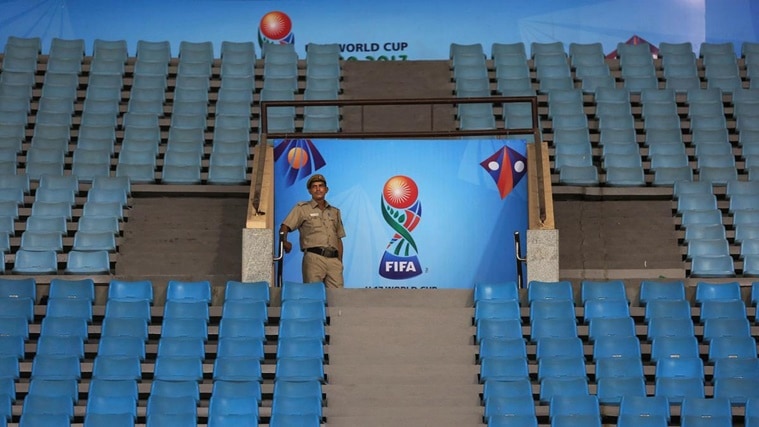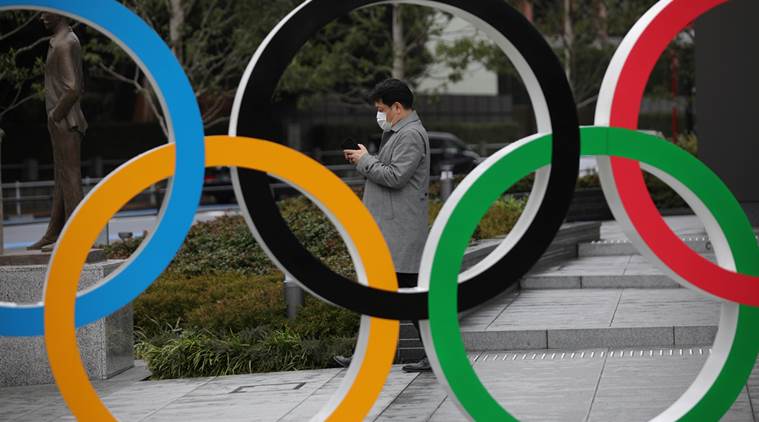From cricket to athletics, how Covid-19 has hit the sporting world and will change it
The global economic slump triggered by the Covid-19 pandemic could change the entire sports industry in ways thought unthinkable till now. Some sports will be hit harder than others. The economic structure of international cricket is likely to change and lower-ranked nations will face a crunch in funds. Sports like hockey stare at an uncertain future.
“The key revenue generation for sports bodies is through licensing of television broadcast rights. With the stoppage in sporting events, it is likely that most sporting bodies will face financial hits. Indian cricket could be relatively better placed. Smaller countries like West Indies, Bangladesh and Sri Lanka could face challenges if their respective media contracts are not renewed,” said Manish Desai, partner in Deloitte India. Desai said sports other than cricket might find it harder to return to normal in India, because they do not have as deep financial pockets
Here’s how various sports have been hit by the coronavirus pandemic and resultant global lockdowns:
Cricket stalled, India could get a bigger role
Indian cricket saw the series against South Africa abandoned due to the virus and could see the IPL washed out, however, it could still emerge with a bigger role to play going ahead. Cricket is likely to see a return of the Big 3 revenue-sharing model, with the lion’s share going to India, England and Australia, a financial model originally devised to tide over the 2008 recession.
Veteran South African administrator and former ICC chief executive Haroon Lorgat had told the Indian Express that this would mean a “battle for survival for weaker nations”. “Without enough cash flow, some nations might even struggle to meet basic expenditure and unless they are provided with support, there could be some casualties.”
However, Deloitte’s Desai said there was no cause for alarm bells just yet. “The ICC could potentially assist low ranked countries to get on their feet once the crisis is over. We will have to carry some of us through this,” he said.
Even the richest cricket boards are bracing for big losses. Cricket Australia stands to lose $174 million should the coronavirus outbreak derail the high-profile home Test series against India later this year. It now remains to be seen if India will play an extended series instead. There’s also the potential cancellation of the World T20 tournament.
The cancellation of the IPL will cost the BCCI, the tournament’s broadcasters and the franchises at least Rs 3,000 crore. “All IPL franchises combined hire around 600 people, which includes freelancers and people on the payroll. Without any revenue coming in, their jobs will be impacted. That figure would be approximately Rs 10 crore,” an IPL team executive had told Indian Express. Then there’s the television deal with Star Sports with the board potentially having to return Rs 1,500 crore.
This, in turn, will have an effect on the Indian economy as well. The 2015 IPL contributed Rs 1,150 crore to the Indian GDP, the BCCI had revealed. Deloitte’s Desai pointed out that the loss would also be felt by industries linked to the tournament. “Even more than the cancellation of the IPL, the breaking of the chain of industries supporting sports is likely to hurt the Indian economy. Support staff, logistic companies, airlines and hotels are some of the sectors which could face the brunt,” he said.
Football on hold
The Indian Super League (ISL) final was held in an empty stadium in Goa on March 14. The I-League season was halted on March 15, with the Neroca vs Chennai City 2-2 draw becoming the last match of the season. The season was eventually called off with 23 matches left and Mohun Bagan were crowned champions.
With many months to go before the start of the next season, Indian clubs have continued making moves on the transfer market during the lockdown.
 The FIFA U-17 Women’s World Cup, originally scheduled to be held in India in November 2020, has been indefinitely postponed. (File Photo/PTI)
The FIFA U-17 Women’s World Cup, originally scheduled to be held in India in November 2020, has been indefinitely postponed. (File Photo/PTI)
India’s remaining World Cup qualifiers have been postponed. Matches against Qatar, Afghanistan and Bangladesh were scheduled for the March-April window and there’s little clarity on when they will be played.
The postponement of the U-17 Women’s Football World Cup, which was to be hosted in India in November, has also caused some concern, though FIFA has said that new dates will be identified at a more suitable time.
After criticism, badminton screeches to a halt
The All England Championships, which concluded on March 15, was the last event India’s major badminton stars participated in. Even then, there had been some voices which had said that the BWF, the world federation for the sport, was putting athletes in danger. Since then, the BWF has postponed or cancelled all events in its calendar for the next few months.
The Swiss Open, India Open, Malaysia Open and Singapore Open have been cancelled, so has the Polish Open scheduled for last week of March.
In tennis, concern for lower-ranked players
India was to take on Latvia in a Fed Cup playoff on April 17-18 but that has been postponed.
With events getting cancelled in tennis, there has been a concern that lower-ranked players who depend on competitions will be financially hit. “If you’re not in the top 100, you will struggle,” Vijay Amritraj had told this paper.
India’s Sidharth Rawat, who is ranked 438 in the world, had said that he could sustain on his savings till September or October. “After that, I’ll be struggling,” he said.
Among the Grand Slams, Wimbledon has been cancelled, while the French Open has been postponed till September 20.
Other Olympic Sports will see a hit in funding
Olympic sports are divided into five categories, and each international federation receives money from the International Olympic Committee (IOC) depending on their audience and size, with those in top-most bracket receiving around $40 million and the lowest getting $7 million. With the postponement of the Games, the IOC is likely to freeze these payments. This, in turn, is set to affect the ecosystem of several sports in India.
“It (the financial slump) will hit us. The question is how big will it hit us,” International Hockey Federation (FIH) CEO Theiry Weil had told this paper.
 A man wearing protective face mask, following the outbreak of the coronavirus, looks at his mobile phone next to The Olympic rings in front of the Japan Olympics Museum in Tokyo, Japan, March 4, 2020. REUTERS/Stoyan Nenov
A man wearing protective face mask, following the outbreak of the coronavirus, looks at his mobile phone next to The Olympic rings in front of the Japan Olympics Museum in Tokyo, Japan, March 4, 2020. REUTERS/Stoyan Nenov
Top Indian athletes across sports are unlikely to be hit financially, with the Sports Ministry having promised that their out-of-pocket allowances, monthly stipends and their training-and-competition expenditure will not be hit. However, spending will be cut on infrastructure projects.
Athletics: Track and field athletes will be in for a hectic time in the summer of 2022, with three major competitions lined up over two months. The World Athletics Championships will be on from July 15-24, quickly followed by the Commonwealth Games (July 27-August 7) and the Asian Games from September 10.
Among major events which were scheduled since March, The World indoor championships in Nanjing from March 13-15 has been postponed to March 19-21, 2021. The Doha Diamond League in Qatar on April 17 has been postponed.
Archery: The World Cup in Guatemala City from April 20-26 has been canceled, as has been the World Cup in Shanghai from May 4-10.
Boxing: The Asia-Oceania Olympic qualifiers, which were moved from Wuhan, China, to Amman, Jordan, were held from March 3-11. The Indian contingent came up with a record-breaking showing in Jordan. On their return to the country, they were screened at the Delhi airport and then became the first bunch of Indian athletes to go into quarantine in the aftermath of the coronavirus outbreak.
The World Cup in Cologne, Germany from June 17-20 has been cancelled.
Shooting: The World Cup in New Delhi from March 15-26 has been postponed to June 2-9. The Olympic test event in Tokyo from April 16-26 has been cancelled.
Table Tennis: The World team championships in Busan, South Korea, has been postponed from May 22-29 to June 21-28. The Asian Olympic qualifying tournament in Bangkok from April 6-12 has been postponed.
Weightlifting: The Asian championships in Tashkent, Uzbekistan from April 16-25 has been postponed.
Wrestling: The Asian championships were held in New Delhi from February 20-23, though China, North Korea, Turkmenistan teams withdrew. The Asian Olympic qualifying event from March 27-29 in Xi’an, China has been postponed. Like in many Olympic sports, this has put the qualification scenario for the next edition of the Games in turmoil.
Hockey: Even before the pandemic, hockey had a hand-to-mouth existence in most nations, with the exception of India, Netherlands and Australia to some extent. But as this report pointed out, with top of the top nations struggling, combined with the current fragile situation of the International Hockey Federation (FIH) and an uncertain future, it is feared that the sport could be headed for a tumultuous period.
The tour that the India women’s team was to undertake of China from March 14-25 has been cancelled.
How sports will return
“We will have to live with the threat of the coronavirus,” said Desai from Deloitte, and warned that sports might never return fully to the way it was before 2020.
It could also see the death of smaller sporting leagues and sports. Big sporting brands such as IPL, Manchester United and NBA will survive, said Simon Chadwick, director of the Centre for Eurasian Sport Industry at Lyon-based Emlyon Business School.
“Smaller clubs, the smaller teams, the smaller organisations, the smallest sports, are saying we’re not in a position to sustain,” he said.
The first step towards initiating a return to normal will be for the respective sporting bodies to sit with the government and chart out their road maps, Desai said. He said there were two ways in which the return to normalcy will play out. The first is that fans are allowed back and that social distancing norms are maintained in stadiums.
Medical experts have said the plan to do ‘mass testing’ of players and officials on the sidelines of tournaments is impractical at this stage and therefore so is a return to sports.
The other is that sports be held in empty stadiums for the foreseeable future, with a focus on improving the viewing experience for the fan. “More analysis which appears on the screen, using Artificial Intelligence to customise fans’ experience are some of the changes we could see in broadcasting,” he said.
